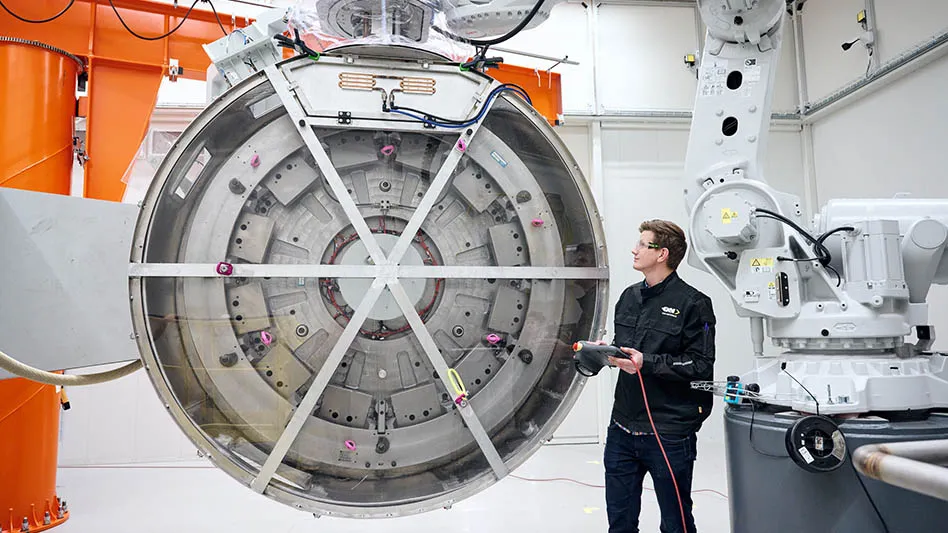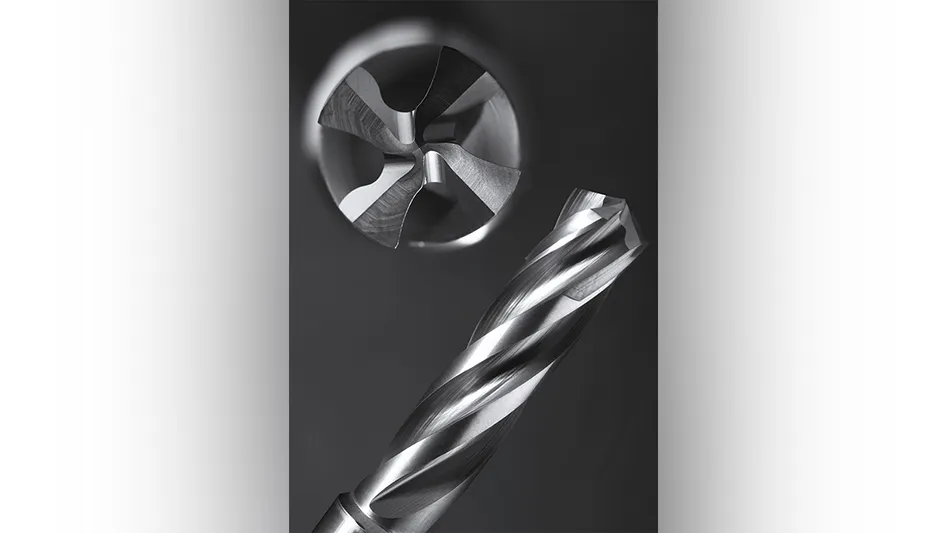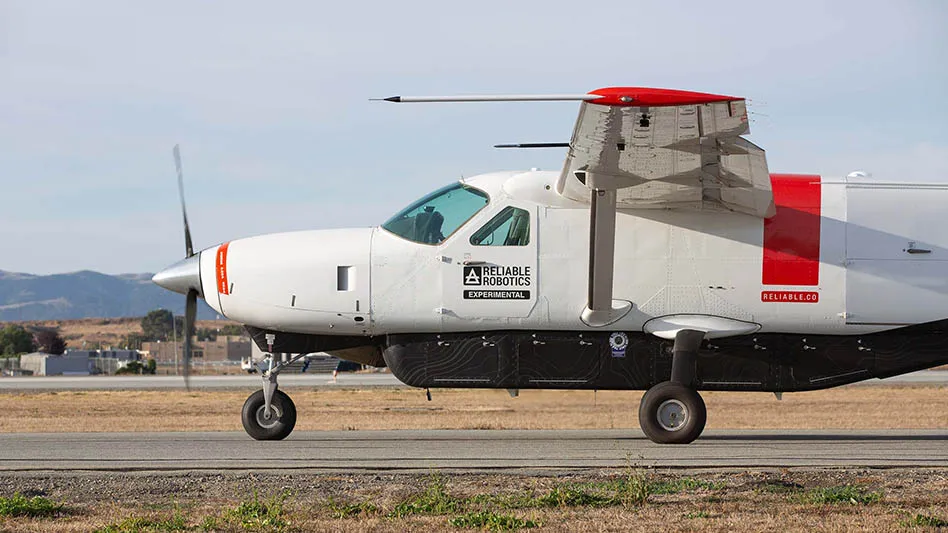
GKN Aerospace
GKN Aerospace has boosted its commitment to sustainable manufacturing, with the equivalent of $63.85 million investment in its cutting-edge additive fabrication technology in Trollhättan, Sweden. The Swedish Energy Agency’s Industriklivet (the Industrial Leap) initiative will fund approximately $15.32 million of this investment, which will help to revolutionize production methods by reducing raw material usage by up to 80%. The technology will be embedded at GKN Aerospace's Trollhättan facility and operational later in 2024.
Currently, aircraft engine components rely on large castings and forgings, with up to 80% of the material machined away before reaching the final form. By employing additive technology, which involves layer-by-layer construction using metal wire or powder fused together with lasers, GKN Aerospace can minimize raw material waste, energy use, and shipping within production. This can significantly cut emissions, costs, and lead time.
GKN Aerospace has been at the forefront of additive fabrication for almost two decades, and has significant research and technology centers in Sweden, the U.K., and the U.S. Thanks to the backing from Industriklivet, the new additive production center is projected to create around 150 new job opportunities for operators, technicians, and engineers at the Trollhättan facility.
Joakim Andersson, president of GKN Aerospace’s engines business, said: “We are committed to driving sustainability in the aviation industry and pioneering improved solutions for our customers. Our development of additive fabrication for large, complex, and load-bearing aircraft components is a great example of this and it marks a significant breakthrough for the industry. The benefits we see from this technology are truly game-changing. Government support has been pivotal in enabling us to push our capabilities forward."
Peter Engdahl, head of research, innovation, and business development at the Swedish Energy Agency said: “GKN Aerospace's solution will be able to contribute to a reduced use of raw materials and create opportunities to fundamentally change the design, making the aircraft engine lighter and more efficient. This is the first time this technology is being tested for this component size and we see the potential for it to spread globally and in other areas.”
GKN Aerospace is committed to achieving net-zero emissions by 2050. Lightweight composites, additive manufacturing, electrical wiring interconnection systems, and innovative engine systems help to reduce emissions and weight on today’s aircraft. GKN Aerospace manufactures aerostructures and engine systems, with 15,000 employees across its 35 manufacturing locations in 12 countries.
Latest from Aerospace Manufacturing and Design
- Garmin earns best supplier recognition from Embraer for 9th consecutive year
- Dillon Manufacturing's Carbinite coating
- #43 Manufacturing Matters - 2024 Spring Aerospace Industry Outlook with Richard Aboulafia
- US operator UrbanLink orders 20 Lilium Jets
- TJ Davies’ retention knobs
- Mazak's VC-Ez 16X for aerospace machining
- India’s IndiGo orders 30 Airbus A350 widebody aircraft
- Techman Robot unveils high-payload AI cobot TM30S at Automate





